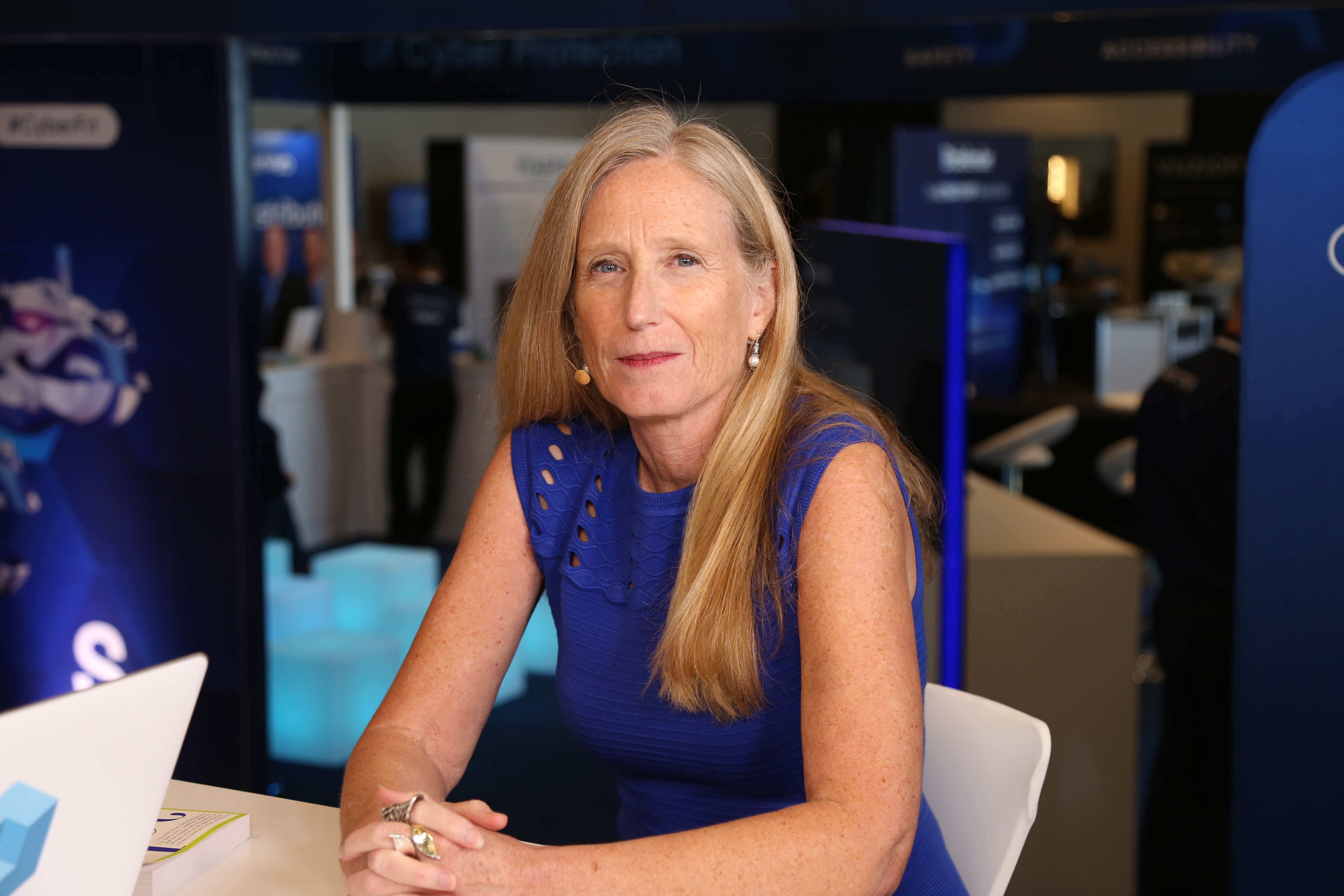 WOMEN IN TECH
WOMEN IN TECH
 WOMEN IN TECH
WOMEN IN TECH
 WOMEN IN TECH
WOMEN IN TECH
There’s a new pothole in the path to equality in the workplace. The balancing act between being assertive enough to get attention, yet not too assertive as to be seen as “unwomanly” has been well-documented.
Now, new research shows women are facing another barrier, one that inadvertently holds back the women who are most dedicated to their work and go out of their way to take care of the tasks that men relegate as unimportant.
“The newest work that we have shows that it’s actually the day-to-day things that happen at work that’s holding women back,” said Linda Babcock (pictured), professor of economics at Carnegie Mellon University. “Men spend much more time than women at … promotable tasks that are rewarded. Women spend much more time than men on these tasks that we call non promotable that are not rewarded.”
Babcock spoke with spoke with John Furrier, host of theCUBE, SiliconANGLE Media’s mobile livestreaming studio, during the Acronis Global Cyber Summit event in Miami Beach, Florida. They discussed gender inequality in the workplace and steps that organizations and employees can take to increase diversity and inclusion (see the full interview with transcript here). (* Disclosure below.)
This week, theCUBE spotlights Linda Babcock in our Women in Tech feature.
Best known as the author of ‘Women Don’t Ask: Negotiation and the Gender Divide” and its follow up, “Ask For It: How Women Can Use the Power of Negotiation to Get What They Really Want,” Babcock is a respected scholar of gender inequality in the workplace.
As well as chair of the Department of Social and Decision Sciences at Carnegie Mellon University, Babcock is founder and faculty director of the Program for Research and Outreach on Gender Equity in Society (known as PROGRESS) and the CMU Leadership and Negotiation Academy for Women.
Babcock’s research sits at the junction of economics and psychology, and she is currently researching the barriers that prevent women from advancing in the workplace.
“Women Don’t Ask” was named one of Fortune magazine’s 75 smartest business books of all time, and it drew the world’s attention to the differences between how women and men negotiate. “Women are less likely to negotiate than men over … pay [and] opportunities for advancement,” Babcock said. “And it really harms them in the workplace because men are always out there asking for it and organizations reward that.”
However, leaning in to demand what they want is a tactic that can backfire for women. Society has no problem with men who stand up and speak out, “but our world has a very narrow view about what’s acceptable behavior for women,” Babcock said.
She refers to the balancing act that women have to do in the workplace as a tightrope. “Women need to go out and assert themselves, but they have to do it in a way that our side of society finds acceptable,” she said. “That tightrope constrains women and doesn’t allow them to be their authentic selves.”
Babcock’s recent research into the gender differences in task assignment has added another dimension to the constraints facing women’s advancement in the workplace. “There are tasks that you can classify as being promotable,” Babcock said. “”These are noticed [and] rewarded. But there’s lots of other things that happen in your organization that are often below the surface that are important to do valued but actually not rewarded.”
These tasks can be as mundane as cleaning out the office refrigerator or as critical to smooth operations as informally resolving low-level disputes between colleagues, recruiting interns, and mentoring new employees. And it’s women who usually volunteer to organize social events, such as office parties or birthday celebrations.
The solution, according to Babcock, is for men to step up to the plate and shoulder some of the responsibility for the tasks that have no tangible reward. “What men can do is start asking men to do some of these things that are important but yet not rewarded, because the portfolio is really out of balance and women are shouldering the burden of these tasks disproportionately,” she said.
Collaborative workplace solutions, such as grouping workers into small, diverse teams, have been proposed to counter unperceived gender biases and provide a level playing field. But, the research shows even these solutions are problematic. Supervisors often “overvalue the contributions of men and undervalue the contributions of women,” even within teams, according to Babcock.
“It’s not that people are trying to discriminate against women. It’s just that it’s a subconscious, implicit bias and so affects our judgments in ways that we don’t even realize,” she said.
It is important for companies to include women in the decision-making process, according to Babcock, because “women spend more money as consumers than men.” Women’s needs for software and products are different to men, “so having women on teams allows them to see perspectives that men may not see,” she noted.
The solution, according to Babcock, is to offer motivational rewards that encourage an equal opportunity workplace. “Organizational leaders should be incentivized to see that they have equal advancement for their male and female employees and their workforce,” she said. “Because if they don’t, it means they’re losing out on this potential that women have.”
Here’s the complete video interview, part of SiliconANGLE’s and theCUBE’s coverage of the Acronis Global Cyber Summit event. (* Disclosure: TheCUBE is a paid media partner for the Acronis Global Cyber Summit. Neither Acronis International GmbH, the sponsor for theCUBE’s event coverage, nor other sponsors have editorial control over content on theCUBE or SiliconANGLE.)
THANK YOU